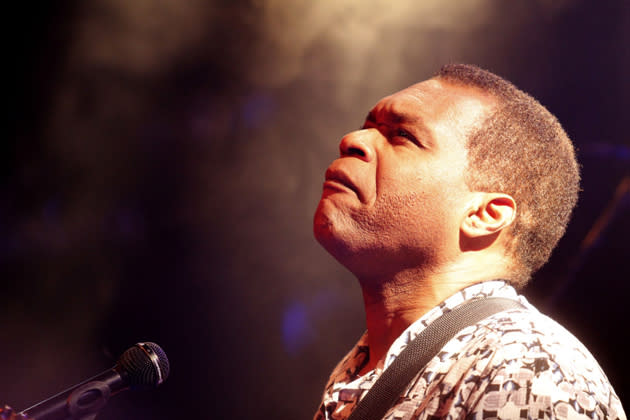Music genres you thought had died
Musical styles are forever coming in and out of fashion.
Some music genres manage to grab the attention of fans for a short while, before gradually retreating into the shadows. Others seemingly evolve as time goes by, having that knack to remain contemporary and in-fashion regardless of the age and era.
But what of those long-forgotten styles, much loved by your parents and grandparents? Are they gone for good, or are they merely simmering in the background? Here's our rundown of the music genres you thought had died:
Disco

Such was disco's prominence in the 1970s - and its domination of the charts - that some sort of backlash was inevitable in the end.
Towards the end of the decade, fans of rock music hit out at the influence of the genre - organising a special 'Disco Demolition Night' against all things hot pants and glitter balls in Chicago.
That week - in July 1979 - the top six singles on the US Billboard were all disco tunes. But within months, such artists had almost completely vanished from the charts.
A number of factors were said to have contributed to the genre's decline, including burnout, the rise of punk, the evolution of pop and a change in record industry strategy.
Tastes may have gradually changed, but in fact disco artists remained popular among many music fans. Every ten years or so there have been revivals, with fans new and old drawn to the style, colour and pounding, rhythmic beat.
Within the last decade, artists such as Madonna and Kylie Minogue have had international hits with disco-themed singles, and in Europe, nu-disco is proving popular on the nightclub scene.
Easy Listening

Easy listening was another popular style in the mid-to-late 20th century. Between the 1950s and 1980s, this slow, drowsy 'elevator music' had a huge fanbase and round-the-clock radio airplay.
Closely associated with adult contemporary, soul and rhythm and blues, easy listening was seen by many as a more palatable alternative to the 'unwelcome' rock and pop sounds that were leading teenagers away from the straight and narrow.
The likes of Percy Faith, Frank Sinatra, Tony Bennett, Dionne Warwick and Matt Monro were early stars of the genre. But countless others have touched upon the genre over the last 50 years - with the likes of ABBA, The Carpenters and Barbra Streisand dipping in and out when it suits.
Into the 21st century, stars such as Michael Bublé, Josh Groban and John Barrowman have also heavily referenced easy listening, giving this 'marmite genre' (you either love it or hate it) something of a re-boot.
Classical
Loved by the grandparents, despised by the grandkids? Classical may not be to everyone's taste (initially anyhow) but the genre is difficult to criticise. After all, this is where it all started - Mozart, Beethoven, Tchaikovsky - and Holst's 'The Planets' for that matter.

For centuries this was the pre-eminent form of popular music, and despite being largely side-lined by 21st century popular culture, it is very much still alive.
The enduring popularity of the opera, the ballet and the British Proms reveal that the genre is actually in rude health.
And if you look at the world of TV and film, classical music is everywhere - whether as the theme to the latest hit drama or the soundtrack to the latest movie blockbuster.
Album sales may have fallen off in recent years, but the market was still worth US $1.4 billion (UK £0.9 billion) in 2009 alone.
The likes of Alfie Boe, André Rieu and Andrea Bocelli manage to transcend the world of classical music, appealing to a broad range of listeners.
Blues
Blues music had a huge influence on popular culture in the early 20th century, particularly in North America where the early African-American phonograph records sold by the million.
By the middle of the century, the likes of B.B. King, John Lee Hooker and Muddy Waters were exporting the sound around the world and earning a global fanbase.
The advent of pop and rock saw the popularity of purist blues musicians wane, despite the fact that Led Zeppelin, Eric Clapton, Fleetwood Mac and co were heavily influenced by their style.

Blues largely returned to the clubs as it lost its commercial edge - but it still maintains a worldwide fanbase.
New artists such as Robert Cray, Chris Thomas King and Eric Bibb have significant followings, proving there is still life on the wrong side of the tracks.

 Yahoo News
Yahoo News 
